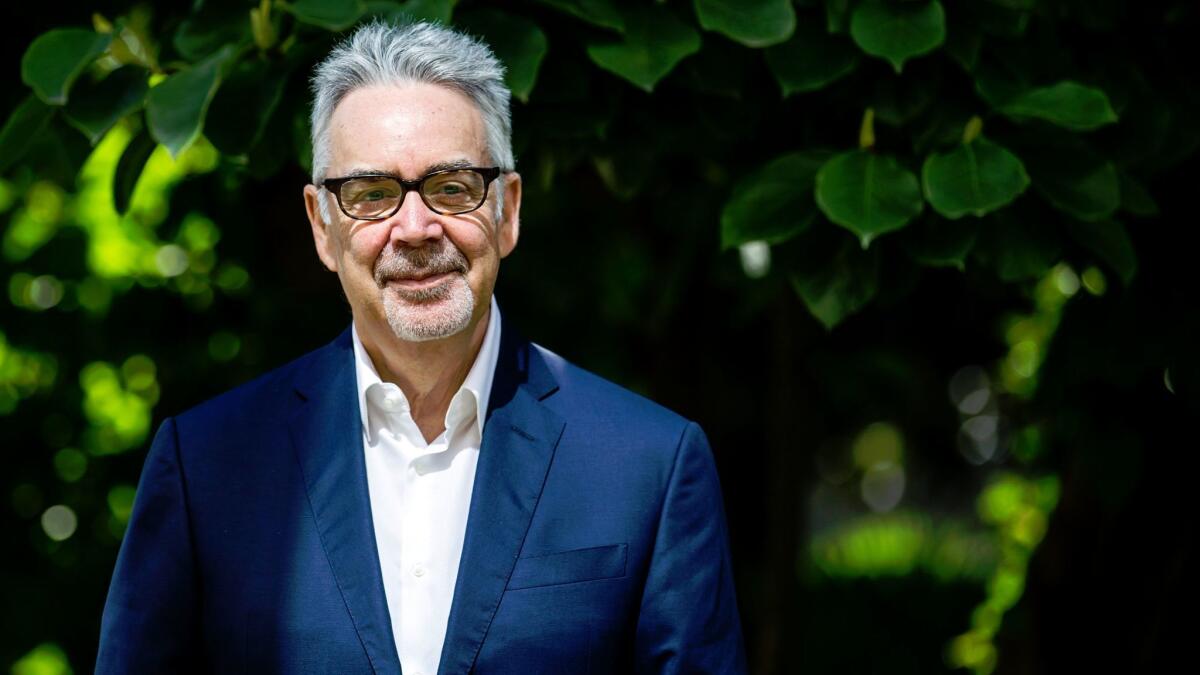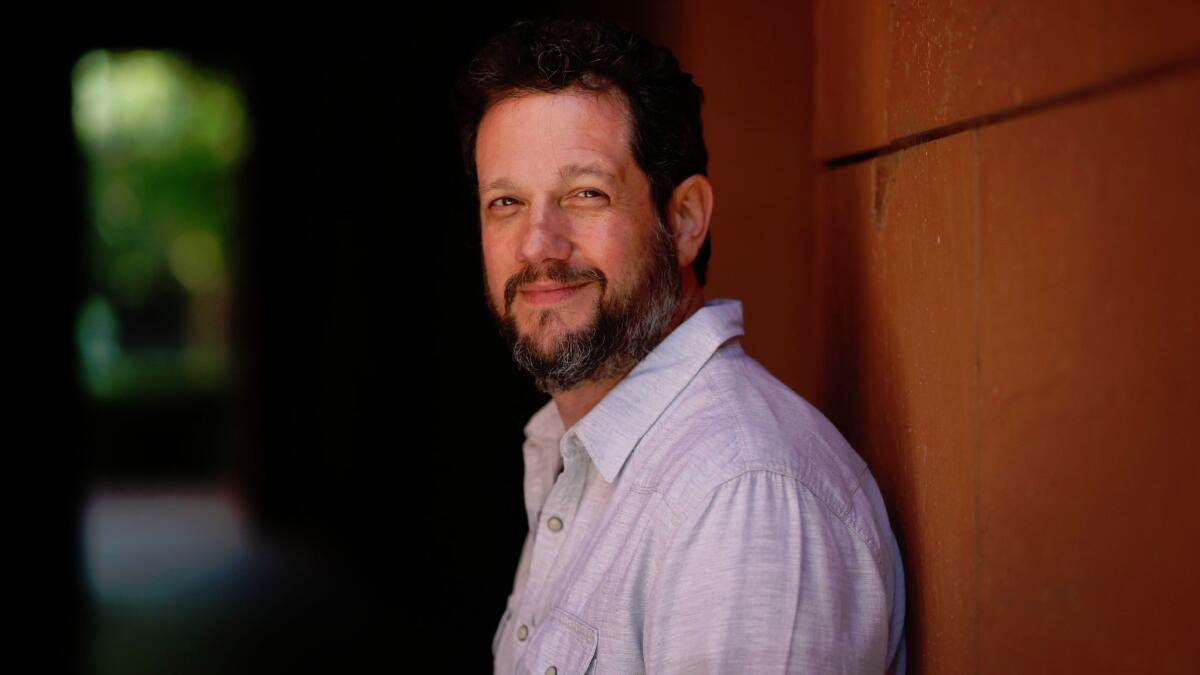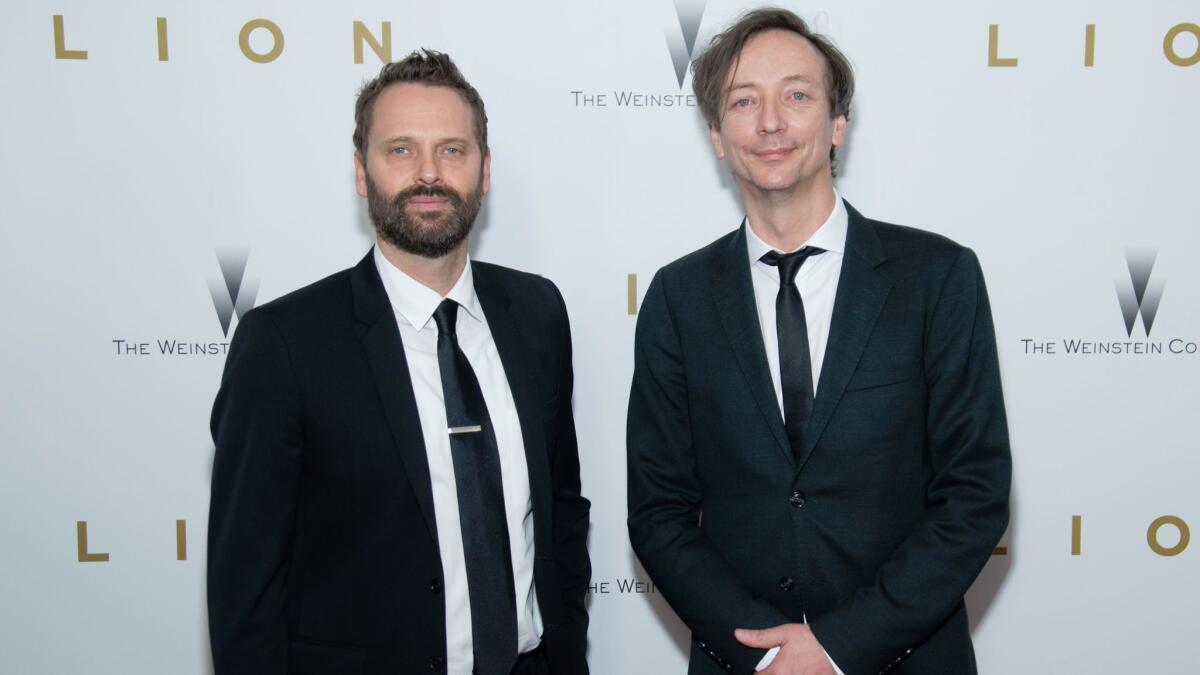Film scores range from experimental sounds (‘Arrival’) to simple, hushed restraint (‘A Monster Calls’)
Many of this year’s notable film scores are the work of relative newcomers to Hollywood, with a few established veterans (as ever) in the mix. The scores range from experimental sound worlds for alien visitors to more traditional, symphonic approaches for more familiar galactic friends. In this roundup of highlights, science fiction is a major presence — a genre that often calls for innovative and interesting music. But several dramas based on recent events also inspired scores that cut to the heart, or subvert emotional expectations.
Howard Shore, ‘Denial’

Last year, Howard Shore, the Oscar-winning composer of the “Lord of the Rings” films, scored the uncovering of a vile truth in “Spotlight” with a dogged piano theme. This year, “Denial” offered him a similar task: to bolster a legal defense of the truth about the Holocaust.
Mick Jackson’s unfussy drama, a true story, spends much of its time in the courtroom as Deborah Lipstadt (Rachel Weisz) and her team fight a libel suit brought by Holocaust-denier David Irving (Timothy Spall).
“Deborah has a voice, but she can’t use it,” Shore said, noting the defense’s strategy to prevent Lipstadt or any Holocaust survivors from testifying. “So the music is providing a voice for the people who are not able to use theirs.”
That “voice” is often the pure tones of a boy soprano. A primary melody for Deborah also runs throughout the film, often alongside her jogging, and Shore paints the coiling tune in a spectrum of sunny and overcast colors.
Importantly, the score provides momentum and drama to the stationary courtroom sequences.
“I try to work around the edges of the story, try to deepen the subtext,” Shore said, “and very carefully and respectfully work around the dialogue. I’m always aware of the true nature of the story, and the portrayal of these people. I’m always very aware of being truthful and telling the story with heart.”
Jóhann Jóhannsson, ‘Arrival’

Amy Adams, Jeremy Renner and Forest Whitaker star in “Arrival.”
“Arrival” speculates on the question: When an alien species visits Earth, how do we communicate? Icelandic composer Jóhann Jóhannsson took the idea of communication and created a score that explores some unconventional possibilities of the human voice.
The Danish vocal group Theatre of Voices and soloist Robert Aiki Aubrey Lowe filled the soundtrack with harmonic overtones and other vocal effects, which Jóhannson then chopped up and layered using old-school techniques such as tape loops.
“The vibrations of our vocal cords form different sounds that form words,” he explained. “Harmonic singing takes the basic formants [or acoustic energy] of the voice, and these are also the basic vowels. Somehow for me it related to the very basic elements of language.”
The film reunited Jóhannsson with Denis Villeneuve — their next project is “Blade Runner 2049” — and as he did on “Sicario” last year, Jóhannsson created an armory of new sounds. One came from recording loops of just the sustain of a piano note (without the attack), and then manipulating the speed of different octaves for an alien application of a familiar instrument.
His efforts earned him the additional credit of “musical sound design.”
“I’m very interested in texture as a part of composing music,” he said. “For me, composing is not simply sitting at a piano and creating a harmonic sequence and a melody on top. My real interest lies in creating sounds that combine these acoustic and electronic sources in a way that is organic and integral. I want the two to merge, and become one voice.”
Thomas Newman, ‘Passengers’
Another story about spacecraft is “Passengers.” Morten Tyldum’s film stars Chris Pratt and Jennifer Lawrence as a pair, traveling from Earth to colonize a distant planet, who accidentally wake up 90 years early. Thomas Newman scored similar images in the 2008 Pixar film “Wall-E” — but this was a completely different animal.
“When you go into something like a space movie, you think there’s going to be no music or little music,” said Newman. “But [Tyldum] kind of defied that notion out of that gate. I was surprised by how much music this could take.”
Newman didn’t take the “Arrival” approach of scoring futuristic space travel with futuristic music or sound design. Rather, he focused on the emotions of the protagonists and the optimism at the movie’s heart. Silky strings and solo piano (performed by Newman himself) breathe in the composer’s trademark romantic style, and the ethereal wisp of an oboe floats over pulsing arpeggios. In some places an electronically generated solo voice approaches, as Newman described it with a laugh, “a bit of a star child thing.”
“It’s very much a relationship movie,” he said. “The minute I tried to use standard ideas of science fiction, the movie didn’t seem to take that very well. I think it wanted its own language, but it didn’t necessarily want that language to be based upon space movies we’ve seen in the past.”
Michael Giacchino, ‘Rogue One’

Space travel takes its most popular form in “Rogue One: A Star Wars Story.” For the caper prequel to the original “Star Wars,” Michael Giacchino had the unenviable task of being the first composer to step into John Williams’ galactic shoes.
“I had a similar issue the first time I did ‘Star Trek,’” Giacchino said. “I almost overthought it too much, because I was like, ‘Oh, my God — it’s ‘Star Trek.’ So when ‘Star Wars’ rolled around — obviously I grew up with it, I love it, I have the action figures from when I was a kid — part of me was just like: ‘Give it to me, I know what to do with this.’”
Another intimidating factor was his ruthless four-week deadline, having stepped in to replace the originally hired Alexandre Desplat. The silver lining to the quick turnaround: He couldn’t afford to overthink it.
“It reminded me of working on ‘Lost,’” Giacchino said of his Emmy-winning work on the ABC series. “You would have three days to get it done, so you learn to not think — just do.”
Tight-lipped on details due to the “Star Wars” shroud of secrecy, Giacchino did say he used some of Williams’ themes and also honored the premier composer’s operatic approach of scoring characters and places with their own themes. Since the film is filled with a new crew of characters, Giacchino was still able to make the music his own.
“Growing up, the film scores that attracted me the most were the ones that were able to tell stories outside of the film,” he said. “They were stories within themselves.”
Fernando Velázquez, ‘A Monster Calls’
Fantastical elements are the means of telling a heartbreaking, very real-world story in “A Monster Calls” from Spanish director J.A. Bayona (“The Impossible”). Bayona’s regular collaborator, Fernando Velázquez, scored both worlds — but it is in the hushed moments of grief where his music wields its piercing power.
“The most important concept in the music is learning to let go,” Velázquez said. “This all reminded me of some Wagner or some Mozart, and some other big composers’ way of putting this in music. There are ways of treating the chords, and even the movement of the voices in the counterpoint, that for some magical reason remind us of this.”
Evoking the philosophical idea of life-transformation-rebirth, Velázquez wrote a three-part theme that he broke apart and developed throughout the score — bringing it into unity in the emotional epilogue.
“It all comes together and you understand that your family, the people you love, the people your children will love — we are all the same stream of love and caring,” the composer explained. “The music, in a way, captures this, with very, very simple chords. It’s white keys on the piano. It’s really simple music. OK, we don’t understand death, we don’t understand suffering, but we share it — and by sharing it, we can face it and we can go on.”
Dustin O’Halloran and Hauschka, ‘Lion’

When director Garth Davis contacted German artist Hauschka and American composer Dustin O’Halloran about scoring the two halves of his debut feature “Lion,” he had no idea they were already friends.
“But Garth has this sort of spiritual, serendipitous nature about him,” said O’Halloran (who scores the Amazon series “Transparent”). “So when I got to know him, it somehow made sense that it worked out that way.”
“Lion” dramatizes the true story of an Indian boy accidentally separated from his home and family, essentially orphaned and adopted by a couple in Tasmania. As an adult, he begins searching for his mother — a story that could easily invite melodrama. Hauschka, the stage name of Volker Bertelmann, and O’Halloran went out of their way to show restraint.
“That was the hard part,” said O’Halloran. “It’s really about using just a few elements, so everything has to be in the right place.”
The composers, sometimes divvying up cues and other times actually co-writing, tied the story’s two halves together by introducing themes and musical ideas early that resurface as adult Saroo (Dev Patel) recalls his past. A gentle arpeggiated piano rhythm, chugging along like the opening shot of a train, becomes a theme of longing. A lonely violin line attends young Saroo on his fateful journey, then haunts him in his future.
The score was recorded with a chamber-sized string ensemble, percussion and piano (including Hauschka’s trademark prepared piano) — lending the music a more delicate, tactile sound than the polished heft of a symphony orchestra.
“It has much more scars, you know,” said Hauschka, “which I think fits to the movie a lot.”
See the most read stories this hour »
ALSO:
How ‘Zootopia’s’ upbeat score explores race and prejudice
‘La La Land’ director Damien Chazelle writes about his favorite musicals
Lin-Manuel Miranda navigates the Pacific to help send ‘Moana’ on a daring adventure
tktktktkt
More to Read
From the Oscars to the Emmys.
Get the Envelope newsletter for exclusive awards season coverage, behind-the-scenes stories from the Envelope podcast and columnist Glenn Whipp’s must-read analysis.
You may occasionally receive promotional content from the Los Angeles Times.






